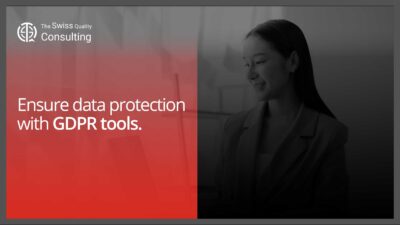Protecting Sensitive Information in the Digital Age
Understanding Data Loss Prevention Solutions
Data loss prevention (DLP) solutions are essential for modern businesses, providing comprehensive monitoring and protection of sensitive data against unauthorized access and exfiltration. These solutions ensure compliance with data protection regulations, helping organizations safeguard their valuable information assets. By implementing DLP solutions, businesses can effectively mitigate the risks associated with data breaches and unauthorized disclosures.
In regions like Saudi Arabia and the UAE, where digital transformation is rapidly advancing, DLP solutions are particularly crucial. Companies in Riyadh and Dubai must adhere to strict data protection regulations to maintain trust and credibility. For instance, financial institutions must protect customer financial information, while healthcare providers must secure patient health records. DLP solutions help these organizations monitor data flows, detect potential security threats, and prevent data breaches.
Moreover, DLP solutions integrate seamlessly with advanced technologies such as artificial intelligence (AI), blockchain, and the metaverse. AI enhances DLP capabilities by identifying unusual data access patterns and predicting potential security incidents. Blockchain ensures the integrity and traceability of data transactions, adding an extra layer of security. By leveraging these technologies, businesses can strengthen their data protection strategies and achieve higher levels of security and compliance.
Key Features of Effective DLP Solutions
Effective DLP solutions encompass a range of features designed to protect sensitive data from unauthorized access and exfiltration. These features include data discovery and classification, policy enforcement, real-time monitoring, and incident response. By combining these capabilities, DLP solutions provide a robust framework for data protection and regulatory compliance.
Data discovery and classification are foundational components of DLP solutions. These features help organizations identify and categorize sensitive data, enabling targeted protection measures. For example, a telecom company in Riyadh can classify customer data based on sensitivity levels, ensuring that the most critical information receives the highest level of protection. Similarly, a healthcare provider in Dubai can classify patient records to comply with data protection regulations.
Policy enforcement is another critical feature of DLP solutions. Organizations can define and implement data protection policies based on regulatory requirements and internal security standards. These policies govern how data is accessed, used, and shared within the organization. Real-time monitoring capabilities allow businesses to detect and respond to potential security incidents promptly. By continuously monitoring data flows and user activities, DLP solutions can identify unauthorized access attempts and prevent data exfiltration.
Implementing DLP Solutions for Business Success
Implementing DLP solutions requires a strategic approach that involves planning, execution, and continuous improvement. Businesses must begin by assessing their data protection needs and identifying potential risks. This assessment should include a thorough analysis of the types of sensitive data the organization handles, the regulatory requirements it must comply with, and the potential threats it faces.
In Saudi Arabia and the UAE, where businesses operate in highly regulated environments, it is essential to align DLP implementation with local regulations and standards. For example, a financial institution in Riyadh may need to comply with the Saudi Arabian Monetary Authority (SAMA) guidelines, while a healthcare provider in Dubai must adhere to the Dubai Health Authority (DHA) standards. By aligning DLP solutions with these regulations, organizations can ensure compliance and avoid potential penalties.
The next step is to select and deploy the appropriate DLP solution that meets the organization’s specific needs. This involves evaluating different DLP vendors, considering factors such as ease of integration, scalability, and support for advanced technologies like AI and blockchain. Once the solution is deployed, businesses must continuously monitor its effectiveness and make necessary adjustments to address emerging threats and changing regulatory requirements.
Future Trends in Data Loss Prevention
The future of data loss prevention is set to bring even more advancements and opportunities for businesses. Emerging trends such as AI-driven analytics, machine learning, and cloud-based DLP solutions are expected to revolutionize the way data is protected. AI and machine learning enable DLP solutions to analyze vast amounts of data and identify potential security threats in real-time. These technologies can predict and prevent data breaches by recognizing unusual patterns and anomalies in data access.
Cloud-based DLP solutions offer scalability and flexibility, allowing businesses to protect data across diverse environments, including on-premises, cloud, and hybrid infrastructures. In Saudi Arabia and the UAE, the adoption of these advanced DLP solutions is likely to accelerate, driven by government initiatives and investments in digital infrastructure. For instance, Saudi Vision 2030 emphasizes the importance of cybersecurity and data protection, creating opportunities for businesses to leverage cutting-edge DLP technologies. Similarly, the UAE’s focus on becoming a global technology hub will drive the adoption of innovative data protection solutions.
Businesses that stay ahead of these trends and invest in advanced DLP technologies will be well-positioned to capitalize on new opportunities and achieve long-term success. By embracing the latest technologies and best practices, they can enhance their data protection strategies, support compliance, and drive business growth.
Conclusion
In conclusion, data loss prevention (DLP) solutions are essential for ensuring the security and compliance of sensitive information in today’s digital age. By implementing comprehensive DLP strategies, businesses in Saudi Arabia, the UAE, Riyadh, and Dubai can protect their valuable data assets, maintain regulatory compliance, and achieve business success. The integration of advanced technologies such as AI and blockchain further enhances the capabilities of DLP solutions, providing businesses with powerful tools for preventing data breaches and ensuring continuous protection.
As the business landscape continues to evolve, the importance of data loss prevention will only increase. Organizations that invest in these solutions and stay ahead of emerging trends will be well-positioned to thrive in the digital economy. By leveraging the power of DLP solutions, they can unlock new opportunities, improve operational efficiency, and drive sustainable growth.
#datalossprevention #DLP #dataprotection #unauthorizedaccess #dataexfiltration #compliance #SaudiArabia #UAE #Riyadh #Dubai #moderntechnology #AI #blockchain #metaverse #generativeAI #businesssuccess #leadership #managementskills #projectmanagement























